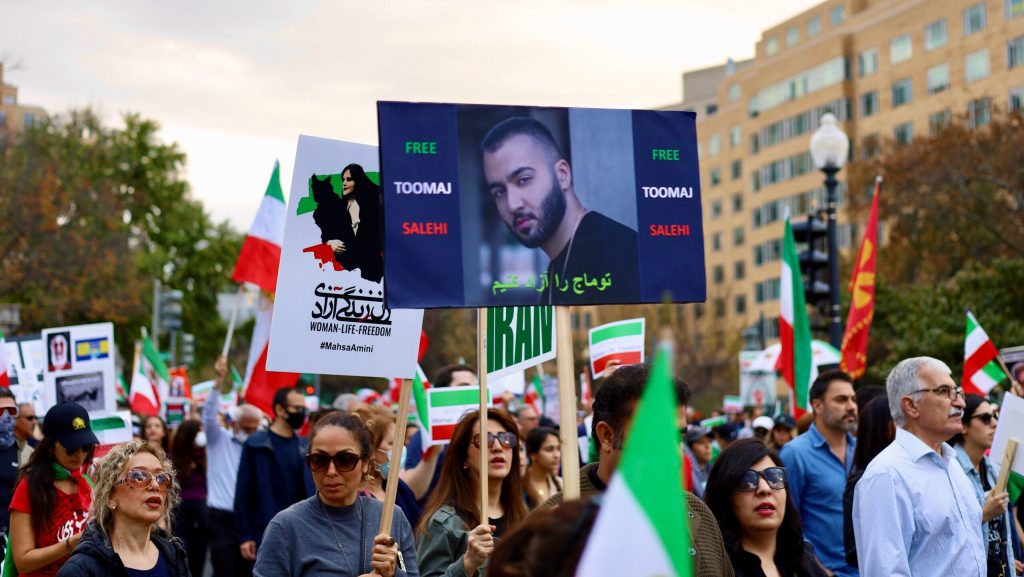Who is Toomaj Salehi?
Toomaj Salehi was born December 3, 1990, in Isfahan, Iran. He studied mechanical engineering and his father owned a workshop in the suburb of their hometown, where he eventually began to work. His father was an activist and spent eight years in prison as a political prisoner. At the age of 12, Salehi’s mother passed away from cancer and this is when he was encouraged to get into music by his brother.
The Rise to Stardom
As a teenager, Salehi began to write songs and officially launched his music career in 2016, at the age of 26. His music encompass raw emotions and societal issues. Early on, many steered clear of his music as he spoke openly about religion, the economy, women’s rights, and the government. As protests became widespread across the country, his fanbase rapidly grew, even after he was banned by the government, as rap is illegal in Iran.
Salehi’s supporters and loyal fans spanned worldwide, including U.S. recording artists Coldplay and Sting. His authenticity and passion shone through each verse, establishing him as a voice for the marginalized. As a rising star in the music industry, he captured the hearts of many with his powerful lyrics and unique style.
The Controversy Surrounding Salehi
Despite his musical success, Salehi found himself embroiled in controversy. He was arrested at his home in September 2021, and charged with “propaganda against the regime” and “insulting the supreme leadership authority”. He was sentenced to six months in jail and fined.
In October of 2022, Salehi was arrested again during the Marsha Amini protests and named as one of the leaders of the riots who promoted violence. (Amini is the 22 year old young lady that was arrested and accused of not wearing her head covering properly. She died in police custody leaving many to suspect foul play) Salehi was charged with “propagandistic activity against the government, cooperation with hostile governments, and forming illegal groups with the intention of creating insecurity in the country”. He was placed in Evin Prison where his family says he was tortured.
The following month a closed door trial was held and Salehi’s family says he was denied the right to have an attorney present and they feared his life was in danger. The media revealed he was charged with “corruption on Earth”, a crime that carries a death sentence.
In July 2023, while still behind bars, Salehi was sentenced to six years and three months in prison but he was released on bail for a short time. During that time a video was released of him saying he was tortured while in prison. He stated he was placed in solitary confinement for 252 days, beaten, and his arms, legs, and fingers were broken.
Salehi was taken back into custody once again but a new trial ensued. It resulted in another charge being added. He now faced “propaganda against the state” and “corruption on Earth” which is considered the most serious charge in Iran. Accusations of inciting unrest led to a shocking development. On April 24, 2024, the talented rapper was sentenced to death.
The Impact on Fans
Devastated by the news, Salehi’s fans rallied together in an outpouring of support. His music, once a source of inspiration, now served as a rallying cry for justice.

A Call for Change
As the world watches Salehi’s story unfold, it serves as a stark reminder of the power of music
and the importance of free expression. Will Salehi’s fate spark a movement for change, or will it
be a harrowing example of artistic censorship?
In the face of adversity, Salehi’s legacy remains etched in the hearts of those who believed in his
message. The rapper’s journey, though tumultuous, serves as a testament to the enduring impact
of music on society.